Sheikh Zainudheen Makhdoom II: The Unsung Greatness
In the annals of Malabar's (North Kerala, India) history, Sheikh Zainudheen Makhdoom Second stands as a towering figure, a luminary whose multifaceted contributions have left an indelible mark on the socio-cultural tapestry of the region. Renowned as a distinguished historian, Islamic scholar, and proactive social reformer, Makhdoom's life and works have been instrumental in shaping the trajectory of Malabar during his time.
His meticulous documentation not only chronicled the historical nuances of Malabar but served as a cornerstone for subsequent research endeavours, elevating the understanding of the region's past. Makhdoom's intellectual eminence transcended borders, garnering recognition and influence not only within India but also beyond.
Beyond the realm of academia, Makhdoom's diplomatic acumen came to the fore through strategic alliances with political powerhouses. He lived in Mughal ruler Akbar’s time and had built alliances with Bijapur king Ali Adil Shah and with Zamorin of Calicut. His linguistic proficiency further facilitated trade relations with distant nations like Turkey and Egypt, underlining his role as a bridge-builder across cultures.
However, Makhdoom's impact extended far beyond scholarly pursuits. His impassioned call to the Muslim community to defend their faith and homeland against Portuguese colonial forces underscored his commitment to preserving the rich cultural tapestry of Malabar.
In the mosaic of Malabar's history, Sheikh Zainudheen Makhdoom Second emerges as an unsung hero, a luminary whose diverse contributions encompassed historiography, diplomacy, and social reform. This article endeavours to shed light on the nuanced brilliance of this remarkable figure, unravelling the layers of his impact on the region and beyond.
Family heritage and roots
Sheikh Zainudheen Makhdoom Second hailed from a venerable Yemeni family named Makhdoom, deeply rooted in the coastal region of Ma’abar. Originating from Tarim in the Hadramout region of Yemen, the Makhdoom family embarked on a mission to Southeast Asia and South India, dedicated to spreading the tenets of Islam and imparting knowledge about its teachings. Their efforts were pivotal in establishing Muslim communities in these diverse regions.
Venturing into Tamil Nadu, India, the Makhdooms visited key locations such as Kayalpattanam, Keelakarai, Madurai, Thanjavur, and Tiruchirapalli, actively contributing to the propagation of Islam in these areas. The 9th century of Hijri marked the arrival of the Makhdoom family in Kerala, where they chose Ponnani as their home. This historic family played a pivotal role in transforming Ponnani into a hub of Islamic learning, earning it the illustrious moniker 'Mecca of Kerala' for its significant role in disseminating knowledge and culture throughout the region.
The patriarch, Ibrahim ibn Ahmad, was the first Makhdoom to set foot in Ponnani, and his esteemed brother was none other than the distinguished scholar Sheikh Zainudheen Makhdoom First. The lineage continued with Muhammed al Ghazali, the third son of Makhdoom First and the father of our subject, Makhdoom Second. A revered member of the community, Muhammed al Ghazali, contributed significantly by constructing the Chombal Juma Masjid. His union with a woman from the 'Valiyakath Taraketti Taravattu' family further intertwined the Makhdoom family with the local heritage.
Born around 1531, Sheikh Zainudheen Makhdoom Second inherited a rich legacy from his forebears. Even today, it is believed that the Makhdoom family maintains its presence in Arabia, symbolising an enduring connection to their ancestral roots.
Educational journey
Sheikh Zainudheen Makhdoom Second's intellectual odyssey commenced under the tutelage of his father, Muhammed al Ghazali, and his uncle, Abdul Azeez, who imparted to him the foundations of his primary education. In the esteemed Ponnani Daras, an Islamic school, he diligently memorised the Holy Quran, laying the groundwork for his profound connection with the sacred text.
However, Makhdoom's insatiable thirst for knowledge led him beyond the confines of Ponnani. Following the completion of the Hajj pilgrimage, he chose to settle in Makkah, a pivotal decision that would shape the trajectory of his educational journey. Under the guidance of distinguished Islamic scholars, notably Shihabudeen ibn Hajar al Haithami, the Grand Mufti of the Haramain and renowned author of "Tuhfathul Muhtaj," a highly referenced work in Shafi jurisprudence, Makhdoom delved into various branches of Sharia.
Widely acknowledged as a true Muhadis, Makhdoom's expertise in the study of hadith earned him esteem among his peers and mentors. Notable teachers such as Abdul Rahman ibn Suffa, Izzudeen ibn Abdul Aziz, and Abdul Rahman ibn Ziyad further enriched his understanding of Islamic scholarship.
Beyond the realms of jurisprudence, Makhdoom sought spiritual enlightenment through his studies in Tasawwuf (spirituality). Abul Hassan al Siddiq al Baqari became his mentor in this realm, and Makhdoom embraced the Qadiriyya Sufi order, embodying a holistic approach to Islamic education.
Makhdoom's educational pursuits culminated in a profound understanding of Islamic teachings, making him proficient in the diverse branches of Sharia. His journey exemplifies a relentless pursuit of knowledge that spanned continents, reflecting the dedication and depth of scholarship that characterised his illustrious educational odyssey.
Dedication in service
Returning to Ponnani after his educational sojourn in Makkah, Sheikh Zainudheen Makhdoom Second translated his acquired knowledge and deep understanding of Sharia into tangible service for the community. For an impressive span of 36 years, he served as a Mudaris (teacher) at the Ponnani Jumma Masjid, becoming a cornerstone of educational guidance and spiritual enlightenment.
Makhdoom Second was not content with merely imparting knowledge; he was a trailblazer who introduced the innovative concept of 'Vellakathirikuka,' a convocation ceremony for scholars under his tutelage. This initiative not only celebrated scholarly achievements but also fostered a sense of academic community and collaboration.
In alignment with his forebears' legacy, Makhdoom Second actively participated in movements against Portuguese occupation. His writings served as a clarion call, raising awareness about the perils of Portuguese colonialism. This intellectual resistance became a source of inspiration for influential figures such as Kunjali Marakar, the admiral of the fleet of Zamorin, and other leaders engaged in anti-colonial efforts.
Makhdoom's commitment to religious harmony and brotherhood was vividly demonstrated in his efforts leading to the Battle of Chalayam. This historic confrontation, involving people of both Hindu and Muslim faiths, stands as a resounding setback to Portuguese influence in India. Makhdoom's role in fostering unity and collaboration transcended religious boundaries, leaving an enduring impact on the collective resistance against external threats.
Recognising the pivotal role of education in empowerment, Makhdoom Second established a system of studying Arabic and Islamic studies through the organisation ‘Daras’ system. This visionary initiative significantly contributed to elevating the literacy rate among Malabar Muslims, including women. Makhdoom's multifaceted approach to service left an indelible mark on the socio-cultural landscape of Malabar, symbolising a legacy of enlightenment, resistance, and inclusivity.
Makhdoom Second: Literacy legacy
Sheikh Zainudheen Makhdoom Second, not only a fervent advocate for independence but also a luminary Islamic scholar, left an enduring literary legacy that continues to resonate globally. His works, written in classical Arabic, became powerful tools in the resistance against foreign powers, inspiring societies to unite and fight for freedom.
Two of his most prominent works are:
1. tuhfathul mujahedeen: This seminal work, translated into 36 languages worldwide, stands as a testament to its widespread influence. Often hailed as the 'Thucydides of Kerala,' Makhdoom Second's magnum opus is a treasure trove of historical insights into medieval Malabar, the Portuguese occupation, early Muslim migrations, and the advent of Islam in India. Tuhfathul Mujahedeen emerged as a rallying point for the Muslim community, fostering unity amidst diversity and championing religious freedom and individual liberty.
2. Fathul Mueen: This profound text on Islamic jurisprudence, based on the Shafi school of thought and an annotation of his work Qurrathul Ayn, occupies a significant place in Islamic scholarship. Widely taught in Islamic institutions in Kerala, Fathul Mueen delves into various aspects of Muslim life, providing guidance on prayer, fasting, marriage, and the pursuit of a virtuous life in accordance with Islamic teachings. Makhdoom's clear and accessible writing style has contributed to the global acceptance of this work.
Other Notable Works:
- Irshadul Ibad Ila Sabeelil Rashad
- Ihkham ul Nikah
- Fatawa Al Hindiyya
- Al Manhajul Vadih
- Qurrathul Ayn
- Al Ajmebathul Ajeeba
These notable works collectively showcase Makhdoom Second's dedication to enlightenment, education, and the advancement of Islamic knowledge. His ability to communicate complex ideas in a straightforward manner has solidified his place as a revered figure in both historical and intellectual landscapes.
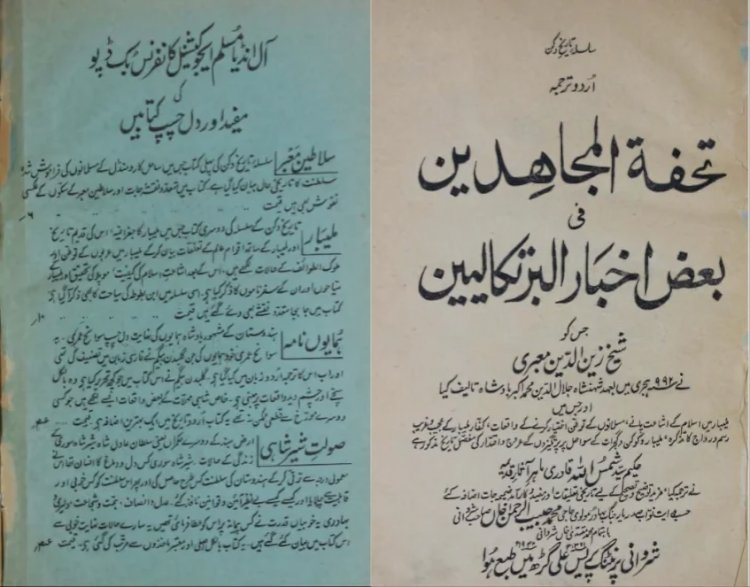
Enduring Influence
Sheikh Zainudheen Makhdoom Second's vibrant life came to a close in the late 16th century, roughly between 970-991 Hijri (1562-1583 CE) as there are different opinions on the exact year of his demise. His final resting place is in the Chombal Juma Masjid, Kunjipalli, Mahe, where he lies alongside his mother. This sacred site has transformed into a pilgrimage destination, drawing devout Muslims who seek solace and inspiration at the tomb of this esteemed scholar.
Makhdoom Second's influence persists through the pages of his profound works. His books, like timeless beacons, continue to guide and inspire younger generations, ensuring that his wisdom transcends temporal boundaries. The legacy he left behind has become a source of enlightenment and guidance for those who follow in his scholarly footsteps.
Makhdoom Second, along with his forebears, has left an indelible mark on the socio-cultural landscape of Malabar, a legacy that echoes through the ages and continues to shape the identity of the Muslim community in the region. As pilgrims visit his final resting place, they pay homage not only to a historical figure but to a beacon of knowledge, resilience, and inspiration.
About the author
Nabeel Muhammed R, born in Kollam, Kerala, is a third-year WAFY student at PMSA Wafy College in Kattilangadi. He is an undergraduate politics student at the University of Calicut and has completed his Hifiz ul Quran from Jamia Bayyinath in Kollam.
References
K K N Kurip. (February 2017). "Zainudheen Makhdoom Second and Tuhfathul Mujahedeen: A Study." Vachanam Books, pp. 16-21.
C Hamza. (2012). "Tuhfathul Mujahedeen Zainudeen Makhdoom Malayalam Translation." Al Huda Bookstall, pp. 13-19.
Dr. Ali Akbar. (30 November 2012). "Makhdum II – A Great Islamic Scholar Lost in History." Arab News. Riyadh: Arab News. Retrieved 1 September 2018.
Staff Reporter. (29 July 2015). "Thuhfathul Mujahideen United the People of Malabar." The Hindu. ISSN 0971-751X. Retrieved 17 January 2020.
Muhammad Husayn Nainar. (1942). University of Madras, "Tuḥfat-al-Mujāhidīn English Translation." Madras, Author's Preface.
Sheikh Zainudheen Makhdoom Second. "Fathul Mueen."
Disclaimer
The views expressed in this article are the author’s own and do not necessarily mirror Islamonweb’s editorial stance.

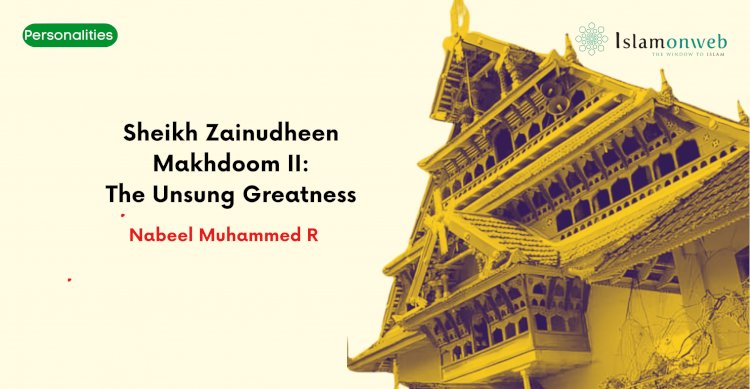


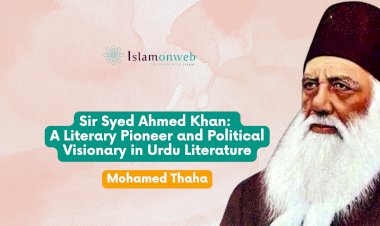
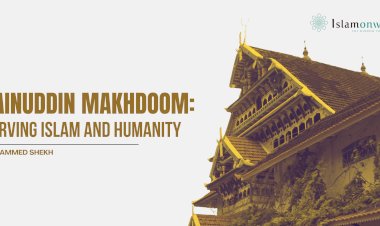

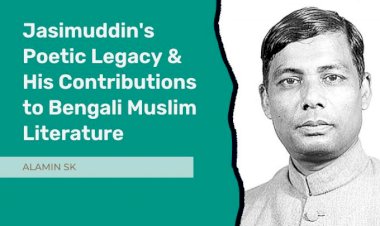
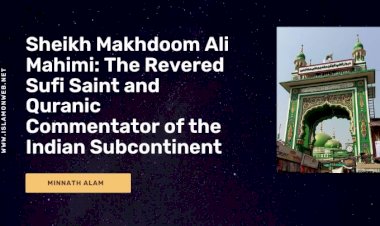
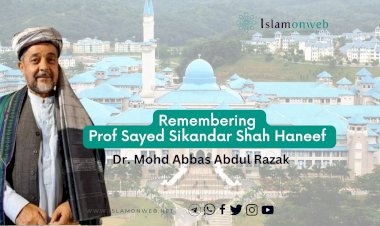














Leave A Comment